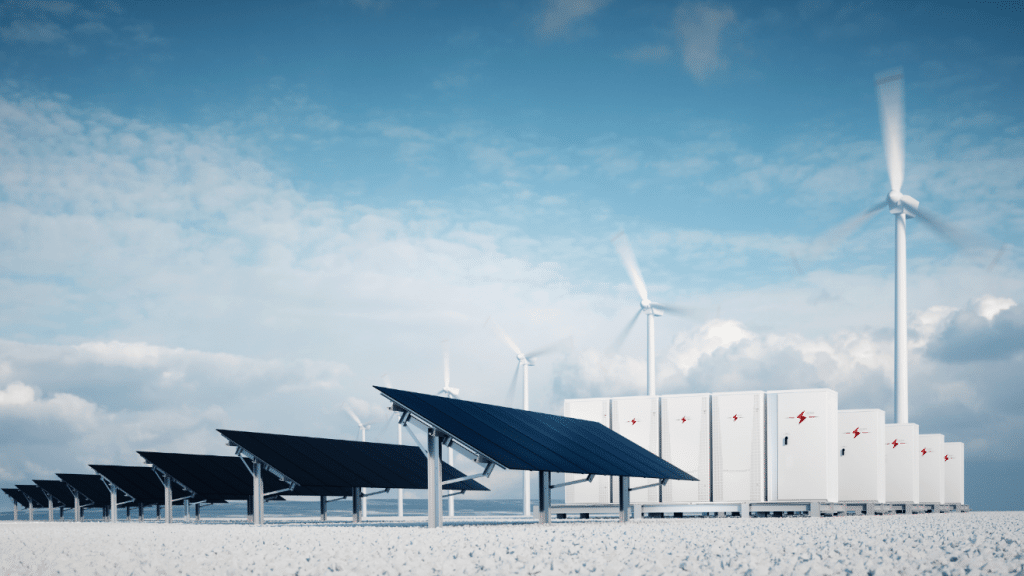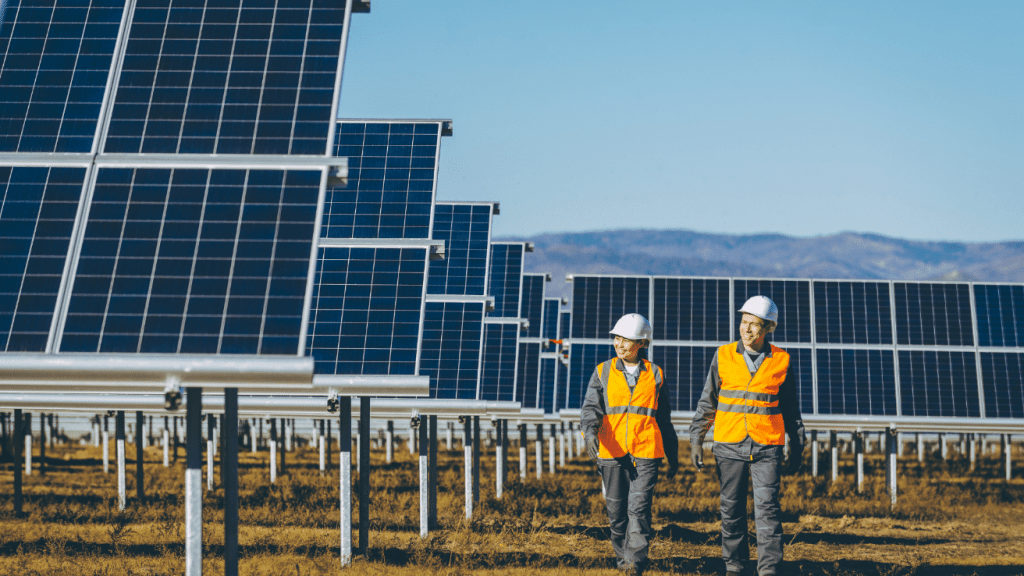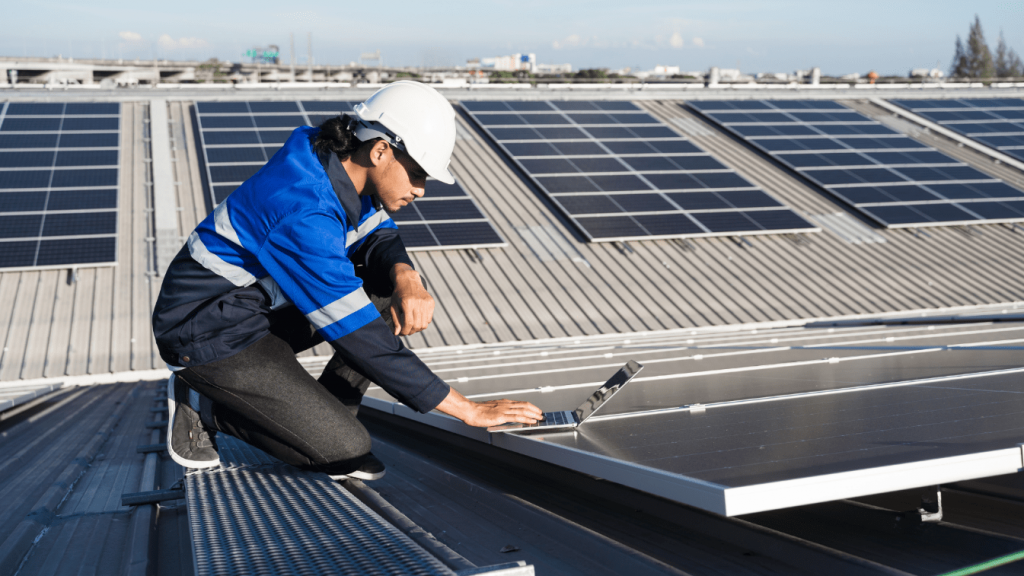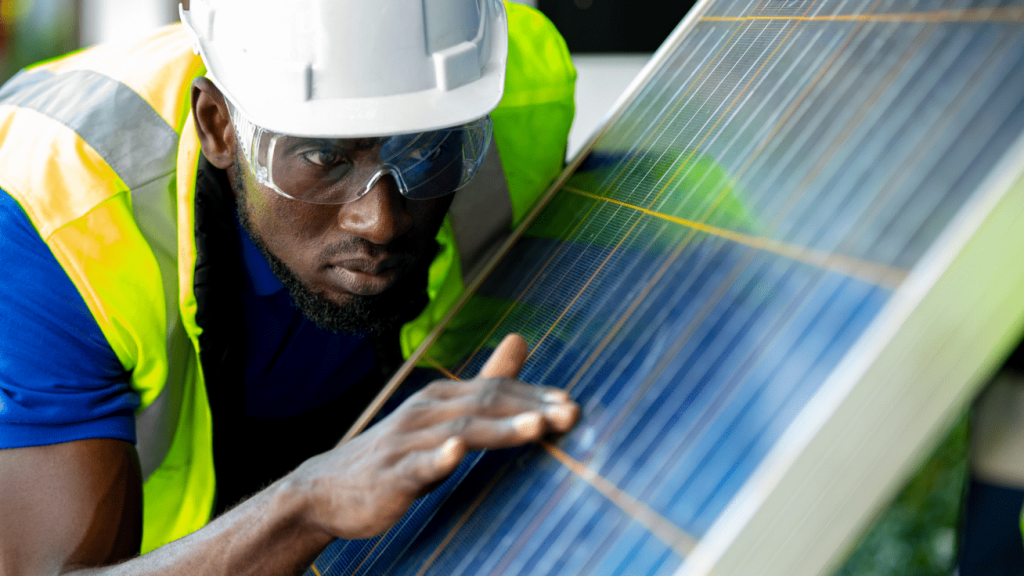
Solar energy is, without a doubt, exponentially expanding. The renewable energy industry has anticipated that by 2050, solar will become the number one source of energy. This is no surprise, given the excellent benefits that come with solar power. Not only does solar power reduce your energy bills, air pollution and greenhouse gas emissions, but it also doesn’t generate pollutants and harmful toxins.
Solar energy is also becoming more and more affordable. Solar panels are becoming more accessible for everyone since the costs have dropped by no less than 90% since 2010. It is also more attainable than ever to switch to solar without owning a property with the help of various solar programs for renters.
Energy Matters has been a leader in the renewable energy industry since 2005 and has helped over 40,000 Australian households in their journey to energy independence.
Let us discuss and choose the best quote that suits your needs and budget, and we can connect you with our trusted local installers, who will provide up to 3 FREE quotes for your home and business solar energy system. Get your free quotes today!
The Growing Trend of Solar Energy
The issues of global warming and the consistent rise of carbon emissions expanded worldwide interest in solar and wind power. Solar and hydro, along with many other renewable energy sources, are amongst the best solutions for reducing greenhouse gases, as well as carbon emissions.
Since the early 2000s, the implementation of solar power around the world has been increasing significantly. As a result, solar is fast approaching hydro-power and wind energy as the most popular source of renewable energy, achieving around 1% of total energy generated worldwide.

With this increasing expansion limiting global warming of solar energy production, solar has become nuclear power’s number one rival in energy production. In 2015, nuclear energy only reached 391 GW (gigawatts), while solar energy attained a capacity of around 350GW globally.
The energy sector anticipates that given solar energy’s current rate of conversion, it can finally surpass fossil fuels by the year 2050. By this year, the implementation of solar energy is expected to be finally available around the world.
Another element that is driving the expansion of solar power is public awareness. People are now becoming more educated on the great benefits of solar energy and are willing to push its growth. As we all know, renewable energies are a much more efficient and renewable energy source compared to nuclear and coal. The investment and development in solar energy will continue as public awareness and support grow.

We have seen an increase of no less than 150 GW in renewables, while gas and coal have decreased steadily. The United States and China led the increasing global use of wind and solar energy in 2021. Global implementation of solar power grew exponentially by 50% in the same year.
In terms of global use, Europe currently sits at the first spot, with Germany leading across all European countries. In 2016, Germany set a goal of 100 GW, surpassing the target with 104GW. In the next five years, it is expected that solar energy will surpass the combined energy generated in both India and China.
Predictions from International Energy Agency reported that India might exceed Europe for solar power use in a few years, and China may produce almost half of the solar panels installed worldwide.
It is unexpected that, given the increasing development and progress of solar power, the United Kingdom has declined its conversion to more renewable sources of energy.
The United Kingdom, unfortunately, reduced its investment in solar panel installations and solar farms. The total amount of solar energy produced declined to half compared to the numbers it had the previous year.
How Climate Affects Solar Panel Production: The Impact of Weather on Energy Efficiency

The examination of combating climate change has been going on for years, and it looks like there is no end in sight. If there’s one thing we must agree on is that we all have a responsibility to do something about it. Solar power production is one solution that has been earning global praise. It doesn’t produce any emissions contributing to climate change, making solar energy an excellent way to minimize our dependence on fossil fuels.
When talk of climate change occurs, many believe that the shifting climate will negatively impact solar production. One misconception regarding solar power is that it produces less energy in cold areas. As a matter of fact, cold environments can still generate electricity, and the true enemy of efficiency in solar and power generation is heat. Colder environments can keep solar panels from overheating. Snow concentrates sunlight and is also reflective.
Your solar panels can still generate electricity in cold areas as long as you keep snow and other airborne elements from burying your modules. Understanding your environment and how it influences your solar PV system is vital, especially if you’re considering switching to a greener option.
If you are thinking of making the switch to solar, complete our quick survey and receive up to 3 FREE solar quotes!
If solar power is becoming more affordable, why aren't we using it more?

Renewable energies haven’t entirely replaced nuclear and fossil fuels despite their evident drop in costs. The delays to a renewable transition are due to the lack of policies, investments, as well as infrastructure that are much needed in this switch.
Unfortunately, these factors have long been in favour of fossil fuels.
It may now be cheaper to build renewables such as solar farms, and wind turbines, but that rate may not immediately compare to fossil fuel plants that are long established. With fossil fuel operations, it is more profitable and advantageous in terms of the structure of utilities.
This may not be good news for the environment, but this is what makes state-regulated monopolies continue to supply power in almost half of the United States. These investor-owned companies enjoy consistent earnings and return on their investments as they continue running these plants.
Solar Energy: The Future of Electricity
Solar-powered transportation and mobile devices
The future of solar energy in Australia extends beyond stationary installations. The country is actively exploring solar-powered transportation options, aiming to reduce global greenhouse gas emissions, mostly in the transportation sector. Solar-powered electric vehicles (EVs) and solar charging stations are being developed and tested to provide clean and renewable energy for transportation.
Solar panels installed on the roofs of EVs can directly charge the vehicle’s battery, extending its range and reducing the reliance on external charging infrastructure. Solar-powered charging stations can also utilise their own solar energy generation capabilities, reducing the carbon footprint and energy costs associated with EV charging.
Moreover, the integration of solar energy with mobile devices is gaining traction. Solar-powered mobile chargers and portable solar panels enable individuals to harness solar energy on the go, ensuring a sustainable and reliable power source for their devices, even in remote locations.
Integration of solar with energy storage systems
The integration of solar energy with energy storage systems is another significant development shaping the future of solar energy in Australia. While solar power is abundant during the day, energy demand continues even after the sun sets. Energy storage systems, such as lithium-ion batteries, play a crucial role in overcoming this challenge.
Australia is witnessing a growing trend of combining solar installations with battery storage systems. This combination enables excess solar energy generated during the day to be stored and utilised during peak demand periods or at night. Homeowners, businesses, and even entire communities can benefit from this integration of renewable energy technologies, achieving greater energy independence and reducing reliance on the grid.
Additionally, advancements in battery technology have made energy storage systems more efficient and made energy infrastructure more affordable. With increased energy density and longer lifespans, batteries are a key enabler for Australia’s sustainable and resilient energy future.
Rooftop solar and its increasing popularity
Rooftop solar energy is driving Australia’s renewable energy revolution as the country takes advantage of its abundant sunlight. The adoption of rooftop solar has seen remarkable growth in recent years, thanks to falling panel costs, government incentives, and favourable policies. Australians are embracing solar power to generate clean energy, reduce reliance on the grid, and control their energy bills. This surge in rooftop solar installations demonstrates the nation’s commitment to a sustainable future of renewable electricity. It has been supported by government schemes like the Small-scale Renewable Energy Scheme (SRES) and feed-in tariffs. Technological advancements, including high-efficiency solar cells and battery storage systems, have further improved the appeal and effectiveness of solar energy, making it an increasingly attractive investment.
The rise of rooftop solar in Australia brings substantial environmental and economic benefits. By reducing dependence on fossil fuels, solar energy significantly cuts greenhouse gas emissions, contributing to global efforts against climate change. Additionally, the solar industry has created numerous job opportunities across the country, stimulating local economies and fostering innovation. As we enter 2023, the future of solar energy in Australia looks promising, with rooftop solar at the forefront. With favourable policies, declining costs, and ongoing technological advancements, solar power not only benefits the environment but also empowers individuals and communities to achieve cleaner, greener, and more sustainable energy consumption.
Not only is solar energy a sustainable resource that doesn’t harm the environment, but it’s also becoming more and more attainable for everyone. And that’s why at Energy Matters, we believe solar power is the future – not just for Australia, Germany, and the US, but for the entire world.
Want to know more about the ins and outs of solar? Check out our blogs today. We got everything you need, from FAQs, guides, tips, etc. Ready to go solar today? Get your free solar quotes here.
Still can’t afford to switch to solar power?
Are you considering getting solar panels but are currently short on funds? You can still invest wisely, and Energy Matters can help you.
Powow and Energy Matters have teamed up to provide consumers with an alternative to switching to solar power and battery storage.
The biggest obstacle to installing solar and battery storage is typically finance. With Powow’s PPA and VPP, our customers will have a $0 upfront option and financial stability in the uncertain energy market.
Get up to 3 obligation-free quotes by getting in touch with us right away. Find out what payment plan options suit your needs and budget!
Check out our page for Powow: Power Purchase Agreement (PPA) and Virtual Power Plant (VPP).














































